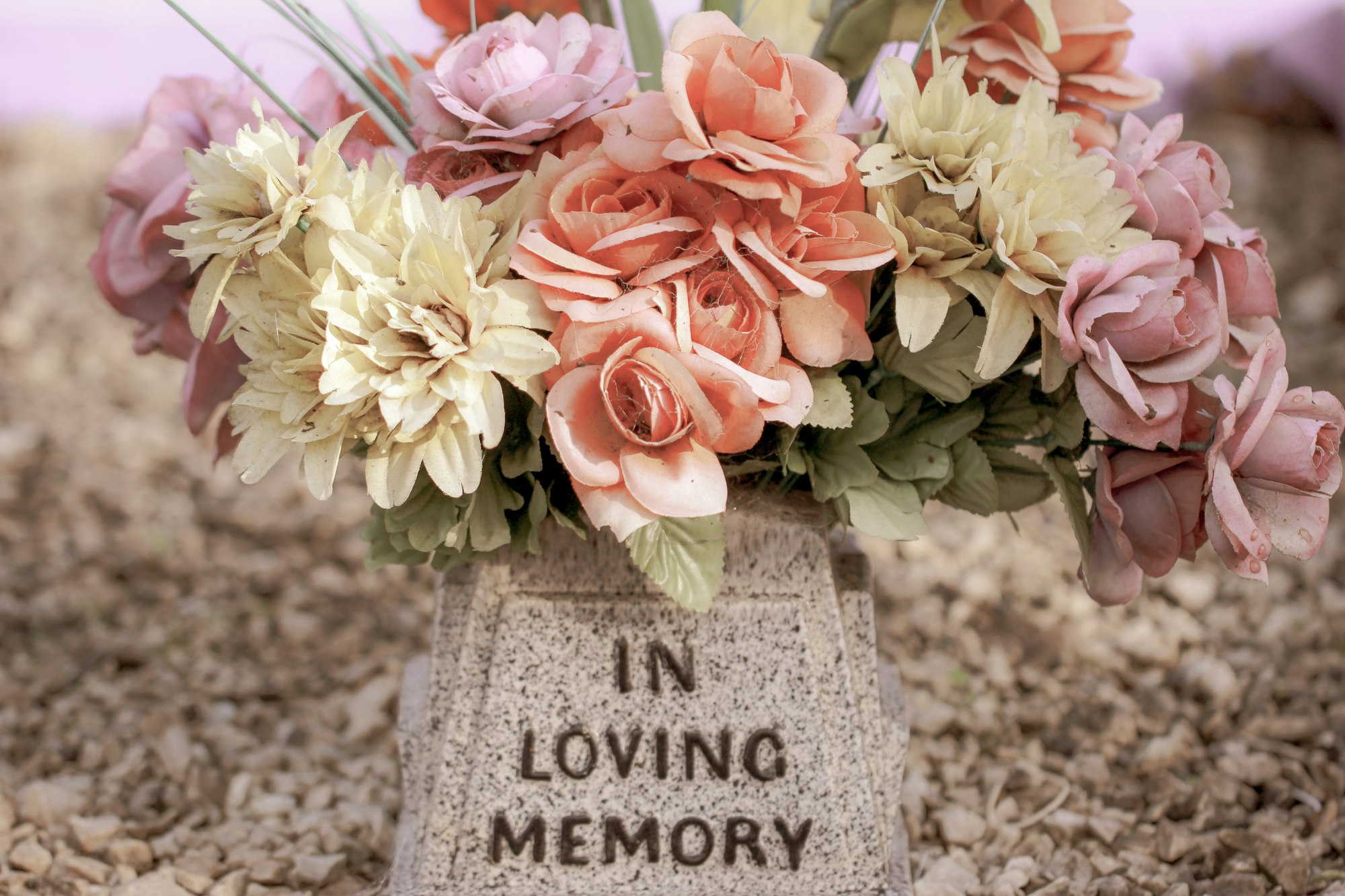Epidsode 26 - Early Onset Dementia and Alzheimer's Disease SSDI Benefits: A Caregiver's Journey


Betsy Wurzel Early Onset Alzheimers Dementia A Caregivers Journey
Welcome to Betsy Wurzel’s Early Onset Alzheimer’s Dementia Caregiver Journey. Alzheimer’s disease is a growing health concern, with millions of people diagnosed worldwide. It’s a progressive brain disorder that affects memory, thinking, and behavior, subsequently leading to a decline in the ability to perform daily activities. Betsy Wurzel battled this disease as a caregiver, providing care and support for her husband diagnosed with early-onset Alzheimer’s. Her journey showcases the challenges that come with caregiver responsibilities, including dealing with the emotional and physical symptoms associated with Early-Onset Alzheimer's Disease (EOAD). Addressing the caregiver journey is essential to provide specialized support and care for Alzheimer’s patients. This blog will detail Betsy’s journey as a caregiver, the impact on her work and personal life, emotional struggles, the importance of seeking help, stress management, and the future of Alzheimer’s caregiving. Join me as we delve into this emotional and inspiring journey.

Diane Carbo:* Hi, this is Diane carbo with caregiver relief. Today I have with me, Betsy . She is dementia care specialist. Our podcast contributor, a caregiver coach and she has the Facebook group. Kick Alzheimer’s ass. I love that name . Betsy and I are going to have a discussion on early onset dementia. Betsy knows this topic all too well because she’s lived it. That’s the welcome. And I’m excited for you to share it. Story with other caregivers out there who are going through a lot right now. And hopefully something that you’ll share with them will click and it will help them.*
Betsy Wurzel:* Hi, Diane, thank you for having me on. Yes. My husband, Matt was diagnosed at the age of 56 after showing signs of memory loss at work. And at home, it was a battle to get the neurologist to say he had early onset. He was misdiagnosed with depression. He was not believed by the neuropsychologist too.*
Betsy Wurzel:* Tested him that he could be that bad. She accused him of being non-compliant don’t you just love it when they explains a person. It’s hello, he’s coming to you for memory loss. I just, I didn’t know, 11 years ago what I know now, cause I would have really bringing to her.*
Diane Carbo:* What I don’t understand is there’s testing that they can do.*
Diane Carbo:* They’re supposed to be doing . Then you’re telling me the neuropsychologist which should be very familiar with early onset dementia. And the signs and symptoms has let you down. That disturbs me. Can you tell me what tests they did or did not do? And with that information that you have now, what would you have asked.*
Betsy Wurzel:* Back then. No, it was 11 years ago. I don’t remember the exact name. Matt was there for at least five or six hours. It was an intense cognitive test. She tested his verbal. Non-verbal I know she would show him something to draw to copy. He couldn’t do it. He couldn’t remember what you would just tell him to say back to her. It was quite an intense test. And then she gave him like a book for him to answer questions. And Mattwas fried at that time. He could have taken anymore. So then he might not have cooperated, but I, what I would have done differently, if I would have known better at the time, I would have said to her, why don’t you believe him?*
Betsy Wurzel:* He’s coming to you for help why don’t you help him? how can you say that he’s being non-compliant with you was he’s telling you, he doesn’t remember what you just showed me. But back then, Diane, 11 years ago, they didn’t know back then what they know now.*
Diane Carbo:* Yeah. They did to some degree.*
Diane Carbo:* I understand what you’re saying. And for our listeners out there, I want people to know that the early onset Alzheimer’s disease is someone that’s diagnosed in their fifties, but it can be as early as in their thirties and forties. It has a strong genetic component to it. So if you’ve had grandparents or parents with Alzheimer’s disease, you’re at much greater risk.*
Diane Carbo:* I’m really disturbed that they didn’t, that the testing they did. She should have known that there was something going on. What did they state that he’s noncompliant? One of the sad parts is we always say we push it’s so important to get a correct diagnosis of early onset and do it as soon as possible.*
Diane Carbo:* And here you are, you were doing that and you were meeting. Resistance from the medical community.*
Betsy Wurzel:* Yes. That’s what got me really disgusted. Eventually when I brought a smartphone into my car to raise awareness, because I was so mad how we were treated how Matt was treated, how we were blown off, the doctors did not want to say that Matt had all high risk because of his age.*
Betsy Wurzel:* We were told he’s too young. He was misdiagnosed the neuropsychologist. Matt had a deep psychological problem and was depressed. And I said, okay. But why can’t he remember? It talks that was February and may, might have been may or June. I put my slip down because Matt would say, he said to me, what time is Sunday school now?*
Betsy Wurzel:* And that’s what Sunday school for over 20 years. And I said, are you serious, Matt? Are you joking? Cause he was a jokester and he goes, no, I’m serious. What time is it on your watch? You said, I don’t know. I say you don’t know, as in, you can’t read it, you can’t see it. You don’t know. He goes I can’t tell him.*
Betsy Wurzel:* That’s not depression, Diane, you know that’s not depression. So I went back to the doctor and we went to other neurologist and they said, he’s a meth too young, but that’s MRI showed global shrinkage. Significant*
Diane Carbo:* global sharing evening. So you’re telling me, even with the MRI showing the major shrinkage, they were still reluctant to give him the diagnosis of early onset.*
Betsy Wurzel:* Yes. And that’s company, doctor who, I don’t know if she saw him in person or not. She told me, and she wrote a letter to Matt primary doctor. She suspected dementia. She did. She said, I feared that, he does have dementia. She goes, I’m hoping it could be, the reversible coin due to some kind of vitamin deficiency she said, but I don’t think that she never slept test.*
Betsy Wurzel:* Diane. His G was abnormal for folks who don’t know it’s the brainwave was abnormal and it’s even set on there. So just up, up the night, You just want to throttle so many of these doctors now I’m not promoting violence. So make that clear, you just get so frustrated. So I said to the neurologist, I said, listen, that doesn’t know how to tell it.*
Betsy Wurzel:* That’s not depression anymore. Call it what it is and get them on medication. And I’d have to tell everyone, Diane, we’re both advocates. You must be an advocate. I don’t care how shy and quiet you are. You have to stand up. And educate yourself. I educated myself with the information that was out there at the time.*
Betsy Wurzel:* And now I have to say this. I am the caregivers in a way now because there’s a lot of information out there. Now. There’s no reason to be an educated caregiver. It’s up to you. You have to do the homework and you need to do.*

Diane Carbo:* Absolutely. I think one of the things that caregivers need to understand, and we understand you’re feeling lonely, you’re still here, the possibility of losing your partner that you thought you were believed to spend the rest of your life with is frightening.*
Diane Carbo:* And then you’re changing your role. From being a romantic, love her partner to whatever, to now be a caregiver and it complicates a relationship. And then you have the healthcare delivery system, our health care professionals letting you down as well. Yeah. So I do recommend, like you say, , do the research on your own and get in touch with people like that.*
Diane Carbo:* CNI who has been there, done it and know how to support you along the way.*
Betsy Wurzel:* Yes, I get into a support group. There wasn’t really that many at the time. It was one for young wise, but it was at a time where I couldn’t go go in person. If you can join the online support group. I have to say, because I belong to many support groups like I did when I first joined Facebook, younger onset Alzheimer’s or whatever dementia you have, it has a whole different circums set of circumstances versus someone who is in their eighties and nineties.*
Betsy Wurzel:* I’m not saying it’s not as terrible, but when you have someone in their prime of life, Getting this disease, their independence does take the way your roles are reversed as traumatic to the family. And then for those who have teenage children, young children, My heart goes out to them because I know it’s difficult.*
Betsy Wurzel:* My son was already 26, but to have a young child, a teenager and seeing their parent like that, it’s hard. This is so difficult.*
Diane Carbo:* And we also in our medical delivery system, lack age appropriate services. And I know from having cared in behavioral health units for several many people with early onset dementia, our placement is really hard for them.*
Diane Carbo:* And there’s a hardship is placed on the families. As well financially because the person is young. They have families. You were blessed in the sense that Josh is a little older, but , I’ve taken care of men or women that have had young children and they had their whole life ahead of them.*
Diane Carbo:* And all of a sudden. Behaviors are so out of whack that they’re aggressive and violent, which does happen with early onset. I don’t know. We could talk about that later, but there’s sexual inappropriate behavior. And they’re not able to work like you were saying, Matt had problems at work and he couldn’t function.*
Betsy Wurzel:* His company, I have to say was so good to him. I was actually in his disability hearing because they knew that I couldn’t remember it was so unusual. It was the first time they had a spouse and the disability hearing. They had to get special corporate permission. And they asked Matt permission for me to go.*
Betsy Wurzel:* And I was like, I was devastated. I was crying in the meeting. I couldn’t believe it. I could not believe cause not didn’t tell me anything. I didn’t, and I wish I would have had this information when I went to neuropsychologist, but Diane, because of HIPAA laws, they wouldn’t tell me anything.*
Betsy Wurzel:* Yes, they could not tell me. Because I asked the human resource person, that’s all you would have had to done was ask Matt. He would have said yes. And then when you take away their driving, Diane, which is a whole nother topic, it can be a whole nother show and is devastating. You’re taking away someone’s independence, who was, Phil knows what’s going on.*
Betsy Wurzel:* Matt knew what was going on with his car was taken away. And it is really devastating. The earning potential, Matt had 10 more years left gone. You’re going from, more than half your pay cut because you go on social security disability. This is , a huge financial problem.*
Diane Carbo:* People don’t understand as well that when you apply for social security disability, it could take as long as two years now. I understand, especially when you’re young younger people. Nice special waivers to get into these programs. I know , that’s why it’s important to have an accurate diagnosis because there is a waiver for early onset dementia.*
Diane Carbo:* Now, maybe it didn’t exist when Matt was initially. Diagnosed, but people struggle with getting approvals for social security disability when they’re under the age of 65. And it is a brutal struggle.*
Betsy Wurzel:* We were fortunate. We had doctor’s notes. We had documentation a lot of documentation when we went to social security.*
Betsy Wurzel:* And the person who did the intake, her father died of early onset Alzheimer’s and she said, my father died at 67 from this. She said, I’m putting you on the fast track. We got it within less than a month. So it’s who your person is. Yes, you*
Diane Carbo:* were very blessed because what I know from my personal experiences, not only is the person that was the early onset dementia, not able to work, but oftentimes the spouse has to quit work to care for the person with the early onset and the finances, just the financial piece gets tight and When they become a full-time caregiver.*
Diane Carbo:* Then they lose medical benefits and it’s just a vicious circle. So it’s really important that people know when they’re trying to apply for these benefits, that they have all the documentation. And sometimes you might have to go to the employer and ask, is early retirement and options for you.*
Diane Carbo:* Till you get through the social security benefit program, and then you have to do research into, social security, Medicare, and Medicaid. It’s important to get your papers in order to that, you can organize your financial documents so that you can manage your family’s finances, but also understand what you need to do to qualify for different programs.*
Diane Carbo:* And it’s really challenging for the young family. It just really is.*
Betsy Wurzel:* Yes, it is. And you have maybe children that are in college. Going to college and then a parent is on social security disability. So then how do you afford to send your child to college? You might need your child at home.*
Betsy Wurzel:* Are they willing to do that? I’m very blessed that Josh lives at home. And that he helped take care of his dad. Otherwise I would have had to quit work. We did a tag team and I was really blessed that I still was able to work. I did apply for myself for early retirement and case.*
Betsy Wurzel:* I had to stay home to take care of Matt and I would have some income, but I was old enough. Because I had turned 62. But what do you do when you’re not 62? And then even at 62, if you apply for early retirement, you don’t get as much in social security as you are when you wait until you’re 67. You’re going to say, a lot of people are in that situation and are going to have to really maybe move in with people to be able to afford.*
Betsy Wurzel:* Housing, this is going to be a huge problem.*
Diane Carbo:* It definitely is. , one of the things we lack as a country is affordable senior housing for one thing. And there’s a lack of professional caregivers out there.*
Diane Carbo:* And for those of you who are doing it, you are the largest group of healthcare workers out there because you’re doing the actual care. You are not paying into social security, you’re not into your future. So we’re going to have a situation where we’re getting, going to have a crisis. 10 to 20 years in regards to housing*
Diane Carbo:* We were the hippies, in the seventies back commune you live in, we’re going to have to do*
Betsy Wurzel:* yes. Yes, I believe so. You have a situation like. The TV show, the golden girls, you had a few people living together, a communal type situation. then , as a staff, quit work, then your social security earnings are going to be down.*
Betsy Wurzel:* Or also the*
Diane Carbo:* prime. I can’t tell you how many times I have had. A client, a patient admitted to a senior behavioral health unit for early onset. Their behaviors can be aggressive. They can be very scary at times. I find it very sad and frustrating for the families because placement is not available for those kinds of behaviors.*
Diane Carbo:* And it’s very hard for people to find placement and they’re stuck taking those kinds of patients with those behaviors home. So medical intervention means zonking them sometimes to be able to have them at home and function and feel safe. So people really struggle with that. They really do.*
Betsy Wurzel:* Yes. And Diane speaking of medication, the listeners need to go back to the show that we did about medication side effects and listen to that because that is a tremendous. Burden on a family member. I know personally, I worked as a nurse, but personally given my husband medication that caused horrible side effects made me feel guilty.*
Betsy Wurzel:* I felt terrible. Just to see the deterioration, you had two things going on, the deterioration as the disease progressed, and then the medication I felt making that worse. And that’s a really difficult thing to deal with as a caregiver. With counseling. I, and I’m not ashamed to say I go for counseling.*
Betsy Wurzel:* I think everyone should. I got over that. But because, and this is a whole nother show to Diane caregiver, guilt,*
Diane Carbo:* I always tell my caregivers, it’s a wasted emotion. It causes shame and negates all the good you’ve done. So get rid*
Betsy Wurzel:* of it. Exactly. Yes.*
Diane Carbo:* I do want to make our listeners aware of there is a lead program, L E a D S. It’s the longitudinal early onset Alzheimer’s disease study. Big words. And if you can enroll in this and if it’s done by the Alzheimer’s association and it’s helping to create information or gather information.*
Diane Carbo:* On early onset Alzheimer’s. I think that’s very interesting and an important thing. I just pulled up the study or ability here, individuals with early onset Alzheimer’s disease, including mild cognitive impairment and those without Alzheimer’s can participate. In the lease program, you have to be between
Introduction
Living with dementia can be a challenging and overwhelming experience, not only for the individual affected but also for their loved ones. As the disease progresses, it can impact daily life, relationships, and overall well-being. In this article, we will explore the complexities of dementia, its effects on individuals and families, and the available resources and benefits that can provide support and financial assistance.
Understanding Early-Onset Alzheimer’s Disease
Early-onset Alzheimer’s disease is a form of dementia that affects people under the age of 65. It is a progressive neurological disorder that can cause memory loss, cognitive decline, and impaired judgment. While the exact cause of early-onset Alzheimer’s is unknown, research suggests that genetics, lifestyle, and environmental factors may contribute to its development. Understanding the disease and its symptoms is crucial for early diagnosis and treatment. Recognizing signs such as memory loss and impaired judgment early on can lead to more effective management of the condition and better quality of life for those affected.
The Emotional Impact on Caregivers
Caring for a loved one with dementia can be emotionally draining and stressful. Caregivers often experience feelings of grief, anxiety, and depression as they navigate the challenges of caregiving. It is essential to recognize the emotional impact of caregiving and seek support from healthcare professionals, support groups, and online resources. By acknowledging the emotional toll of caregiving, caregivers can better cope with the demands of caregiving and maintain their own physical and emotional well-being. Support from healthcare professionals can provide much-needed guidance and reassurance, while connecting with others in similar situations can offer comfort and practical advice.
Navigating Social Security Disability Benefits
Individuals with dementia may be eligible for Social Security Disability Insurance (SSDI) benefits, which can provide financial assistance and support. To qualify for SSDI benefits, individuals must meet the Social Security Administration’s (SSA) definition of disability, which includes having a medical condition that prevents them from engaging in substantial gainful activity. The SSA also considers the individual’s work history, age, and education level when determining eligibility. Understanding the SSDI application process and requirements can help individuals with dementia and their caregivers navigate the system and access the benefits they need. It is crucial to gather comprehensive medical history and documentation to support the application, ensuring a smoother process in obtaining the necessary financial support.
Financial Planning and Independence
Living with dementia can have a significant impact on an individual’s financial situation. As the disease progresses, individuals may need to rely on others for financial support, which can be challenging for those who value independence. Financial planning and independence are crucial for individuals with dementia, and there are resources available to support them. For example, the Social Security Administration offers Supplemental Security Income (SSI) benefits, which can provide financial assistance for individuals with limited income and resources. Additionally, long-term care insurance and other financial planning tools can help individuals with dementia maintain their independence and financial security. It is important to explore these options early on to ensure a stable financial future and reduce the burden on other family members.
By addressing these key areas, we can provide a comprehensive guide for caregivers and individuals affected by early-onset Alzheimer’s disease, helping them navigate the complexities of the condition and access the support they need.
FAQ: Early Onset Dementia and Alzheimer's Disease SSDI Benefits
General Questions
What is Early Onset Dementia and Alzheimer’s Disease?
Early Onset Dementia refers to cognitive decline that occurs before age 65, and Early Onset Alzheimer’s Disease is a specific type of dementia affecting younger individuals, leading to impaired judgment, memory loss, and motor skills.
What is SSDI (Social Security Disability Insurance)?
SSDI is a federal program run by the Social Security Administration (SSA) that provides monthly payments to individuals unable to work due to a qualifying disability, including cognitive disorders like Alzheimer’s Disease.
How does Early Onset Alzheimer’s Disease qualify for SSDI benefits?
The SSA includes Early Onset Alzheimer’s Disease in its Compassionate Allowances program, expediting the claims process for individuals diagnosed with certain severe conditions.
What is the difference between SSDI and SSI?
- SSDI benefits are based on the individual’s work history and contributions to Social Security through payroll taxes.
- SSI (Supplemental Security Income) is need-based and available to individuals with limited income and resources.
Eligibility and Application Process
Who is eligible for SSDI benefits for Early Onset Alzheimer’s Disease or Dementia?
Eligibility depends on:
- Having a medical diagnosis of Early Onset Alzheimer’s Disease or a related cognitive disorder (e.g., Pick's Disease, Progressive Supranuclear Palsy).
- Meeting SSA’s criteria for disability, which includes significant impairments in memory, motor skills, and cognitive functioning.
- Sufficient work credits earned through prior employment.
What medical evidence is required to apply for SSDI?
The SSA requires:
- A diagnosis from a healthcare professional.
- Comprehensive medical history, including test results (e.g., cognitive assessments, brain imaging).
- Evidence of significant changes in cognitive functioning or ability to perform work-related tasks.
How do I apply for SSDI benefits?
- Complete an application online at the SSA website or in person at your local Social Security office in New Jersey.
- Provide detailed information about your medical conditions, job history, and how symptoms impact daily life.
8. What is the first step in applying for SSDI benefits?
The first step is gathering all medical documentation and consulting with a healthcare provider to confirm your diagnosis and assess the impact on your ability to work.
Compassionate Allowances and Expedited Claims
What are Compassionate Allowances?
The SSA’s Compassionate Allowances program fast-tracks applications for individuals with severe medical conditions like Early Onset Alzheimer’s Disease, reducing processing times.
How long does it take to receive SSDI benefits under Compassionate Allowances?
Decisions are typically made in a few weeks if all required documentation is submitted promptly.
Financial Benefits and Payments
How much are SSDI monthly payments?
Monthly payments are based on your average lifetime earnings and are calculated by the SSA. Use the SSA’s benefit calculator for an estimate.
Can I receive both SSDI and long-term disability benefits?
Yes, if you have an employer-provided insurance policy or private coverage, you may be eligible for additional long-term disability benefits. However, SSDI benefits may reduce the amount you receive from other programs.
What if I cannot cover my living costs with SSDI alone?
You may qualify for Supplemental Security Income (SSI) or other government assistance programs to help with basic needs.
Impact on Family and Caregivers
How can family members assist in the SSDI application process?
Family members can help by:
- Collecting medical evidence.
- Completing application forms.
- Acting as a representative if the diagnosed person has difficulty managing the process.
Are caregivers eligible for any benefits?
While SSDI does not provide direct payments to caregivers, other programs like Medicaid or local community services in New Jersey may offer caregiver support.
Medical and Employment Considerations
What role do healthcare professionals play in the SSDI process?
Doctors provide critical documentation of your diagnosis, symptoms, and how they impact your daily life and ability to work.
How does Early Onset Alzheimer’s Disease affect job eligibility?
Individuals with significant cognitive or motor impairments often struggle to meet the physical and mental demands outlined in a typical job description, making them eligible for disability benefits.
Can I work while receiving SSDI benefits?
The SSA allows limited work under its Trial Work Period program without jeopardizing your SSDI benefits. Check with the SSA for income limits.
Community and Support Resources
What support services are available for individuals with Early Onset Alzheimer’s Disease in New Jersey?
Local organizations and resources include:
- Alzheimer’s Association New Jersey Chapter.
- Community-based programs offering respite care for families.
- Support groups for caregivers and those diagnosed.
How can Supplemental Security Income (SSI) assist with healthcare costs?
SSI recipients are often automatically eligible for Medicaid, which can help cover treatment, medications, and related expenses.
Common Challenges
What are the challenges of obtaining SSDI benefits for Early Onset Alzheimer’s Disease?
Challenges include:
- Collecting sufficient medical evidence.
- Ensuring the right words are used to describe impairments.
- Understanding the SSA’s eligibility requirements.
What happens if my SSDI claim is denied?
You can file an appeal. Common reasons for denial include insufficient evidence or misunderstanding of SSA criteria. Working with an attorney or advocate may improve your chances.
Examples and Real-Life Scenarios
Can you provide an example of someone who qualifies for SSDI benefits?
A 55-year-old diagnosed with Early Onset Alzheimer’s Disease struggles with memory loss, impaired judgment, and inability to complete their job as a project manager. Their medical history and cognitive assessments demonstrate significant changes, making them eligible for SSDI.
How do significant cognitive changes affect eligibility?
The SSA assesses how symptoms like trouble with memory, motor skills, and cognitive functioning affect your ability to perform basic work activities.
For More Information
25. Where can I find more information about SSDI benefits for Early Onset Alzheimer’s Disease?
Visit the Social Security Administration (SSA) website, or contact a local SSA office in New Jersey for assistance. Additionally, explore resources from the Alzheimer’s Association or consult a disability benefits specialist.
You might also like this article:
















